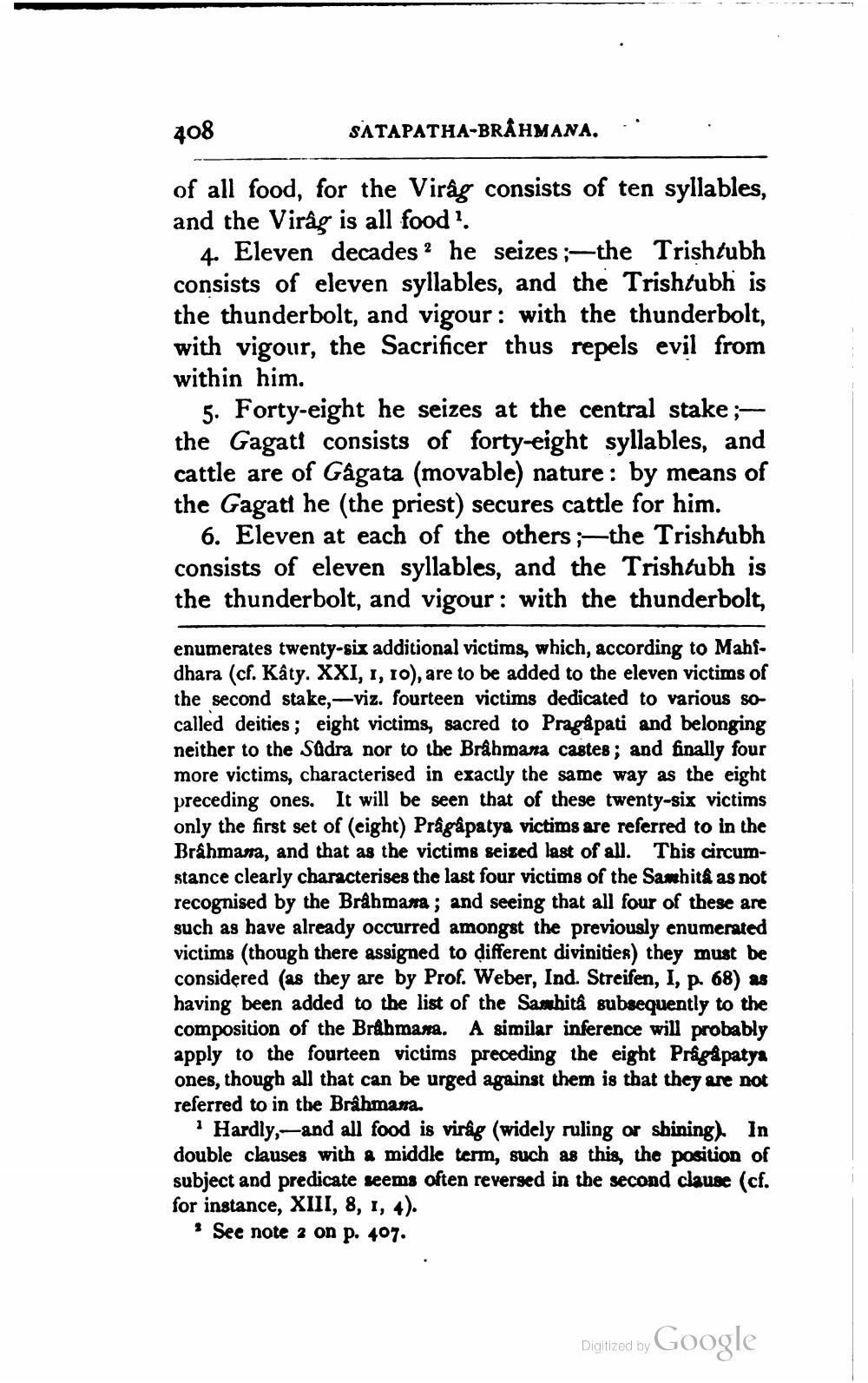________________
408
SATAPATHA-BRAHMANA. ..
.
of all food, for the Virág consists of ten syllables, and the Virág is all food?
4. Eleven decades 2 he seizes ;-the Trishtubh consists of eleven syllables, and the Trishtubh is the thunderbolt, and vigour: with the thunderbolt, with vigour, the Sacrificer thus repels evil from within him.
5. Forty-eight he seizes at the central stake ;the Gagati consists of forty-eight syllables, and cattle are of Gågata (movable) nature: by means of the Gagati he (the priest) secures cattle for him.
6. Eleven at each of the others ;—the Trishtubh consists of eleven syllables, and the Trishtubh is the thunderbolt, and vigour: with the thunderbolt,
enumerates twenty-six additional victims, which, according to Mahidhara (cf. Kâty. XXI, 1, 10), are to be added to the eleven victims of the second stake,—viz. fourteen victims dedicated to various socalled deities; eight victims, sacred to Pragåpati and belonging neither to the Sodra nor to the Brahmana castes; and finally four more victims, characterised in exactly the same way as the eight preceding ones. It will be seen that of these twenty-six victims only the first set of (eight) Pragapatya victims are referred to in the Brahmana, and that as the victims seized last of all. This circumstance clearly characterises the last four victims of the Samhita as not recognised by the Brahmana; and seeing that all four of these are such as have already occurred amongst the previously enumerated victims (though there assigned to different divinities) they must be considered as they are by Prof. Weber, Ind. Streifen, I, p. 68) as having been added to the list of the Samhità subsequently to the composition of the Brahmana. A similar inference will probably apply to the fourteen victims preceding the eight Prágápatya ones, though all that can be urged against them is that they are not referred to in the Brahmana.
· Hardly, and all food is virág (widely ruling or shining). In double clauses with a middle term, such as this, the position of subject and predicate seems often reversed in the second clause (cf. for instance, XIII, 8, 1, 4).
See note 2 on p. 407.
Digitized by Google




